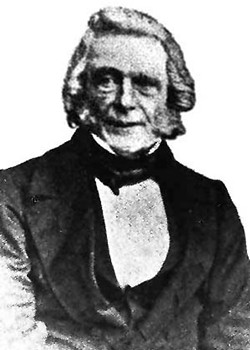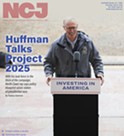[
{
"name": "Top Stories Video Pair",
"insertPoint": "7",
"component": "17087298",
"parentWrapperClass": "fdn-ads-inline-content-block",
"requiredCountToDisplay": "1"
}
]
The philosopher and gadfly Daniel Dennett, who died in April, wrote that evolution by natural selection was "the single best idea anyone has ever had." The word "anyone" implies a single idea-monger, although, as I've written elsewhere ("Evolution's Co-Discover," Nov. 5, 2020), the credit should go equally to two great field naturalists of the 19th century, Alfred Russell Wallace and Charles Darwin. The latter is usually cited as the prime discoverer, due to his publishing On the Origin of Species in 1859, a year after twin papers by both had been read to the Linnean Society of London on the same evening, July 1, 1858.
Then there's Patrick Matthew, who some historians say should be given credit as the original discoverer of natural selection, anticipating Wallace and Darwin by nearly 30 years. In 1831, Matthew published a book in which he uses the term "the natural process of selection." However, his contribution, if it can be called that, is that he published his ideas in the appendix to a book on growing trees for shipbuilding, Naval Timber and Arboriculture. He wrote, "As the field of existence is limited and pre-occupied, it is only the hardier, more robust, better suited to circumstance individuals, who are able to struggle forward to maturity, these inhabiting only the situations to which they have superior adaptation and greater power of occupancy than any other kind ..." Which sounds like a neat summing up of the principle, summarized by "Darwin's Bulldog" three decades later, as "survival of the fittest."
The year after publishing On the Origin of Species in 1859, Darwin was made aware of Matthew's earlier book. True to his reputation for honesty and courtesy, he then included a statement in subsequent editions of Origin noting that Matthew had anticipated "precisely the same view on the origin of species" and "clearly saw ... the full force of the principle of natural selection." Matthew later wrote, "To me the conception of this law of Nature came intuitively as a self-evident fact, almost without an effort of concentrated thought." So we have both Darwin and Wallace putting in many dogged (and fraught) years of fieldwork in South America, and, for Wallace, Southeast Asia. Being Christians, both struggled — for years — to accept the logical consequences of their observations (evolution doing work previously assigned to God). Meanwhile this guy Matthew, working away in apple orchards in Scotland, figures it out "intuitively" because it was "self-evident!"
The late, great evolutionary biologist Ernst Mayr wrote in The Growth of Biological Thought, "Patrick Matthew undoubtedly had the right idea, just like Darwin did on Sept. 28, 1838 [Darwin's "aha" moment], but he did not devote the next 20 years to converting it into a cogent theory of evolution. As a result it had no impact whatsoever." Richard Dawkins sums it up in "Darwin's Five Bridges: The Way To Natural Selection" as such, "I am increasingly inclined to agree with Matthew that natural selection itself scarcely needed discovering. What needed discovering was the significance of natural selection for the evolution of all life." That is, trees are one thing; all of life, nearly 4 billion years of it, another.
We have a local connection to the guy. Two of Patrick Matthew's sons emigrated to California prospecting for gold. On seeing the huge Sierra redwoods (Sequoia gigantea) in Calaveras Grove, they sent back seedlings and cones to their horticulturist dad, where they were planted in August of 1853, the first to be cultivated in Europe. "Our" coastal redwoods (Sequoia sempervirens) had preceded them to Scotland (via Russia), having been planted from seeds in 1844. As a result, several stands of redwoods thrive in Scotland, notably in Perthshire and Kinross.
Barry Evans ([email protected]) is humbled knowing he is merely a temporary vehicle to get genes from one generation to the next.
more from the author
-
Rise and Fall of the "Sunshine Vitamin," Part Two
- Jul 11, 2024
-
Rise and Fall of the 'Sunshine Vitamin,' Part One
- Jul 4, 2024
-
The Myth of the Lone Genius
- Jun 6, 2024
- More »

































